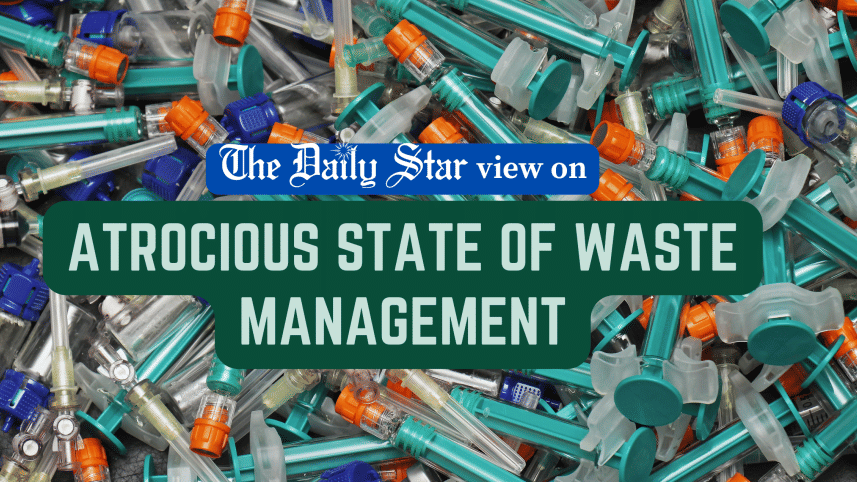Dirty business of medical waste management

We are concerned by the haywire manner in which medical waste is handled in Bangladesh. A recent report by this daily highlights that half of the healthcare facilities in Khulna city lack their own waste disposal mechanisms and dump unsorted garbage in street bins, according to the city authorities and the DGHS. Of the 12-14 tonnes of clinical waste produced every day in Khulna city, two NGOs – Prodipan and Sadichha – collect only seven to eight tonnes from 172 out of the 406 hospitals and clinics regularly.
Medical waste includes amputated body parts, stool, urine, blood, phlegm, bandages, syringes, needles, etc. All this is discarded on the streetside or in regular garbage bins not just in Khulna, but across the country. A Brac study from 2020 found that around 93 percent of medical waste in Bangladesh was unmanaged.
Our concern regarding such mishandling of clinical waste is twofold. First, of course, is the danger that such disposal of clinical waste poses to public health. Not only HIV, and Hepatitis B and C, but antibiotic-resistant germs (superbugs) and other dangerous germs, too, can spread from medical waste and affect people through touch and inhalation. Second, many medical staffers have made a business out of reselling used medical equipment such as syringes to syndicates. This seems to be a part of the culture of our healthcare facilities, given that even during the worst phases of the Covid pandemic, we witnessed the flagrant disregard with which medical waste (including PPE likely containing the deadly virus) was disposed of. In fact, a Transparency International Bangladesh (TIB) study last year found that around 60 percent of hospitals do not have bins to store medical waste, while 83 percent have no waste treatment system. The same TIB study also pointed out the severe lack of accountability and rules to check the corruption and irregularities that plague medical waste management in the country. Clearly, this situation is deeper than just the carelessness of medical and city authorities.
We urge the medical facilities across the country to recognise this epidemic of haphazard medical waste management. For starters, they must set up adequate waste processing plants and not rely on a handful of NGOs to deal with hundreds of tonnes of medical waste. It is also crucial that the government wakes up to the dangers of this issue. The Medical Waste Management and Processing Rules, 2008 that we have is inadequate in its current form to hold the city authorities responsible for the rampant mishandling of medical waste. This must change. Not only should the disposal of medical waste be safer, but the syndicates that profit from mishandling waste (which includes corrupt officials) must be brought to book as well.



 For all latest news, follow The Daily Star's Google News channel.
For all latest news, follow The Daily Star's Google News channel. 

Comments